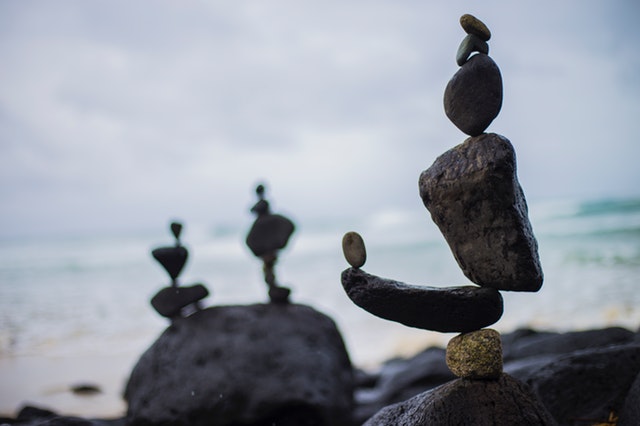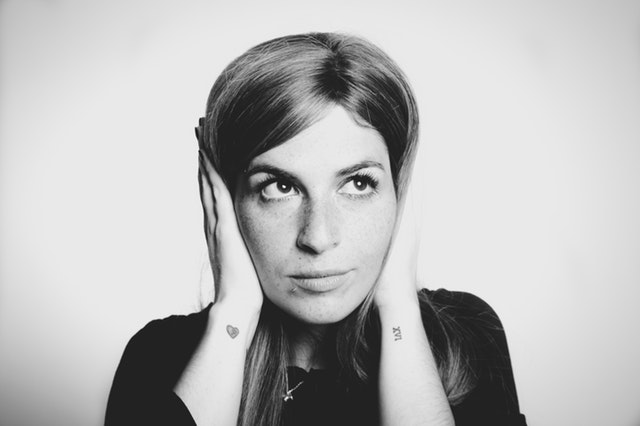Being Your Child’s Friend and Parent
Q. I do welcome your advice and think you speak a lot of sense, but I am not sure about your advice to be your child’s friend in one of your articles. What is wrong with being a mum? I am the only person who can officially be regarded as mum in my daughter’s life and I feel very proud to be so. I am not sure being a friend is possible as the friendship is automatically unbalanced. I have a number of very good friends, some long term and we have quite balanced relationships, involving give and take. I do not regard my relationship with my daughter as balanced, and she does not seem to understand give and take. I would also say she is a very high maintenance friend, and therefore I would go out of my way not to be her friend if she wasn’t my daughter. I don’t think she is like that with her peers though – I think their relationship is balanced. When choosing activities, we try to pick nice things to do and see, and we get a lot of resistance from her until we get her there and then she loves it. We also get resistance around food and most things at the moment – she is quite selfish and does not seem to understand the notion of helping out, and she wants things from shops all the time, which is wearing.
A. Being a friend to your child and being your child’s mother are not mutually exclusive. What my article attempts to portray is the role of an authority figure who is also a friend — in my estimation the best kind of authority figure and one who is respected and appreciated more than one who holds power over another. I wonder if some of the resistance you get from your daughter is due to the fact that she feels the hierarchical approach from you and doesn’t feel the “friend” aspect of your relationship.

I also believe that in order to have a strong connected relationship with our children, we must see the balance. Yes, you have authority because age is a factor. You cannot expect your child to want to do what must be done — clear the dishes, go to the dentist, eat healthy food, discern tech time — so your authority must remind, problem solve, and make agreements to insure things get done in order to maintain balance in your family.
You cannot expect your child to want to do anything but play, so you must see to all the necessary functions of growing up before your child is old enough to see the importance herself. You do this because your young child is helpless and developmentally incapable of managing on her own.
Of course, resistance comes due to her stage of development and the limits you must put on her to help her feel that you are in charge and in control — she is too young for this. This is why you are more than a friend. I always advocate for parents to be their child’s #1 ally. That does not mean that setting limits is not necessary, but it can be done in a way that is respectful, that maintains balance.
You certainly do not want to feel walked over by your friends, nor do you want the power to walk over them. Friends come to agreements mutually. That is very possible with children when we understand that they do not need to be dictated to and directed all the time. Connection with our children requires us to speak to them in the same way we speak to our friends. We do not have the right, nor is it effective teaching, to speak to our children in ways we do not want them to speak to us. Double standards do not work.
Speaking down to them, telling them what to do and how to do it. With connection and empathy, we get into their shoes and understand their point of view and frame of reference first — important in a friend relationship. Then we talk about what needs to be done — we hear situations, choices, and desires from our children. We listen to their point of view. Then we acknowledge our own and work with problem solving to find a balance that works for both of us. I imagine that is how you work out relationships with your friends as well.
Being a friend also means knowing whose problem is whose — we do not ask either our child or our friend to solve our problems or take responsibility for them. When I have a problem (don’t like something my child is doing) and yell at my child for being annoying, I am blaming my problem on my child, making my annoyance her problem. When I own it (“I feel annoyed when I hear…. That is not okay with me. Here’s what I would like.”), then my child is far more likely to be cooperative because she does not feel blamed. She can then hear me and what I want. She feels respected and never put down — the foundation of a good friendship.

It takes a lot of accountability and responsibility to be a good friend to your child as well as a good parent. Both require respect, consideration of each other’s agendas, and a balance of needs. It’s amazing how much resistance falls away when we establish this kind of relationship. You will always be her mum but hopefully you will want to be her friend as well.
How to Understand Angry Behavior
Q. I could use some help with my 6 year old daughter who is very strong willed. How do I help break her habit of saying “stupid, idiot, I hate you, no” etc. Do I just ignore her and hope she will outgrow this or is there something more going on behind the scenes? And she likes to yell when she talks to her parents, as if she is angry. Any help you can provide would be most helpful.

A. No you do not ignore her. Ignoring means that you are paying no attention to the reasons that are prompting her behavior, which will only make her angrier and prone to more attitude and dramatic words. Also ignoring means that it’s okay with you to be spoken to like that.
Sometimes it takes a bit of detective work to uncover what is going on. But first, ask yourself what you imagine she thinks and feels within your relationship. In your interactions, does she think she is a problem? Does she feel unconditionally accepted by you or might she fear that you wish she were different? Does she feel heard, accepted, understood? Or does she ever complain that she’s bad or indicate in any way that she is putting herself down?
These are tough problems for a lot of parents who think their job is to make sure their children do what they say. Read my first response about being friends with your child. But also, do not let go of what is important to you and what you need to maintain balance. If she yells “stupid idiot” at you, tell her calmly that you do not want to be spoken to that way. Let her know that you will be in the kitchen when she is ready to tell you what she wants. And then go to the kitchen. Do not engage in a battle of wills.

I use the metaphor of an iceberg to help parents understand how behavior should be approached. 90% of an iceberg lies beneath the surface of the water. All we see is the tip, but if we don’t acknowledge what lies below the surface, we can crash and sink. Behavior is only the tip of the iceberg; it’s all we see. But if we only address the behavior, we miss the big picture and are in for problems of resistance and reactions. Below the surface of the behavior lies the internal emotional state from which behavior emerges. Draw an iceberg with a “water line” separating the tip from the larger area representing the internal emotional state.
In the tip, write your daughter’s behavior, words or attitude. When you are in a calm mood, write below the line anything that comes to mind that could be prompting her behavior. When behavior is resistant or angry, I always assume that feelings of powerlessness, feeling unaccepted, and misunderstood are strong possibilities for provoking angry behavior in a young child. Get as specific as you can. She doesn’t like it when I yell at her. Her sister was provoking her a lot today. She hates it when she gets homework.
When you see what lies beneath the surface and stop taking the behavior at face value, you will feel more compassion for where she is coming from. Once you can switch your perception around to see that she is having a problem and not being a problem, you can address her problem differently. Ex: “Boy you really hate what I just said to you. You wish I would say something different.” or “You must think I don’t understand what you’re asking/wanting. Can you try it again, and I will listen very closely?” You are ignoring her words but not her. You are giving her the connection she needs to get to the root of the problem.
It sounds like you have what I call an Integrity child. This is a strong-willed child who won’t take no for an answer and will not be told what to do. Nothing wrong with that. It just makes it doubly hard to parent her! I know, I have one.
When the Coach is a Bully
Q. I am 63, raised 4 children and have been raising my 10 year old grandson since he was 5 weeks old. My daughter was unable and unwilling to care for him and four years ago committed suicide. He has no father either. He is on the Rec department basketball team this year for the first time ever. One of his coaches is a bully. He screams at the kids all the time, swears and rarely gives a compliment to any child. He has no child on the team himself, although the other coach does, and his son is favored at every game and plays the entire game. I would like you to address this kind of bullying in sports, and I’d like to know your opinion on what a parent could do other than speak to the coach and report these incidents to the Rec department (all of which I have done). It seems this particular coach is also on the Rec department BOD so I think he is well protected. This coach needs to go. There should be no room for a person like him to be coaching 10 and 11 year olds. I do not want my grandson to suffer consequences from my speaking out (although I think he has already).
A. How awful for you to get a new baby to raise and then lose your own. I can’t imagine the pain of that. I hope your grandson brings you some joy. Your predicament is a tough one. Unfortunately, there are too many stories like yours. Not only bully coaches, but over involved parents can ruin the experience of playing sports for kids. I’m afraid there is nothing more to do other than what you have already done, which is important. After that, it’s no one signing up for that coach’s team. And then you have to decide whether that choice is yours or the child’s.

I’m curious to know how your grandson feels about his coaches and his experience on the team. If he would rather stay on the team given the present circumstances, then I would do some problem-solving with him. Talk with him about your observations. You do not have to say what a jerk the coach is, merely, “What I see is not okay with me. His way of treating children I find very offensive. I’m wondering what you think about it.”
It’s important that your grandson know that the bullying is not acceptable. Ask him what effect it has on him, making sure he understands that this is the coach’s problem has, and he is not to blame. Then pose the question: “Is basketball important enough to you to put up with this coach’s rude and inappropriate comments and not take them personally or do you feel bad enough to quit and wait for another team with a different coach?” Let it be your grandson’s choice.

If he chooses to continue, keep the conversation going with him. But be careful not to infuse your opinion too strongly or he will stop talking. Always let him take the lead with a simple, “How was practice for you today?” If he is up for it, you can do some role playing with him. You can take the role of coach and encourage him to first say anything he wants to you. Let him get it all out. Then ask your grandson what he could say to the coach for real. Don’t tell him what you would say. If it’s inappropriate, say, “Okay, what do you think he would say or do then?” Keep going until he comes up with something respectful of the coach and truthful about his feelings. “I feel really put down when you talk to me that way.” But he may not want to put himself in a vulnerable position, so let him figure out what is best for him.
I find that this kind of role playing empowers the child. Even if he says nothing at all, he knows he has it inside. And he knows not to take the bullying personally — a very good lesson in understanding people. He will have lots of people like this in his life. The most important lesson is to learn that it is their problem not his. All tough situations can become important learning opportunities — much better than you trying to fix it for him. And blessings to you for taking on your grandson’s upbringing.
To submit a question, email me at bh@bonnieharris.com with your short question and I will answer you within a few days. It may appear in the newsletter at a later date.
 The When Your Kids Push Your Buttons Audio Course
The When Your Kids Push Your Buttons Audio Course
Have you ever asked yourself, “Why did I DO that??”
Wish you knew what else to do?
Learn to:
- Understand your reactions and gain control of them
- Interpret your child’s behavior
- Set appropriate expectations
- Defuse your buttons
Related Articles:







